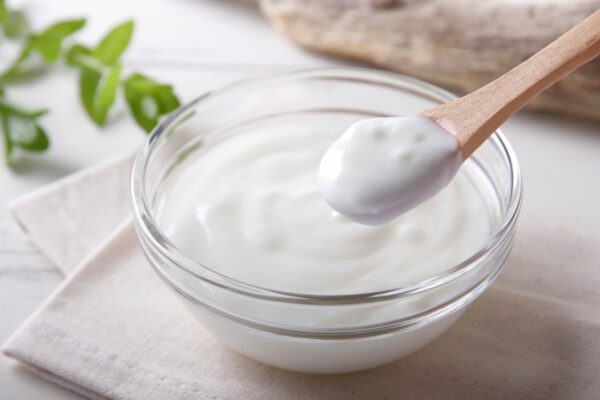There is no doubt that yogurt seems to be one of the healthiest and most delicious snacks. So many owners like to indulge their cats with it, but it turns out that giving them yogurt may not be such a good idea after all.
Therefore, as a pet lover, you will be interested in knowing: Can cats eat yogurt?
Luckily, this article explores whether or not cats can eat yogurt and if so, how much of it is safe for them to consume and under what circumstances this snack can be harmful to your cat’s health.
Keep Reading!
Can Cats Eat Yogurt?
Although yogurt is not an ideal treat for all felines, they can occasionally consume a small amount when it is plain and unsweetened.
Cats should be introduced to yogurt in a very small amount, as adult cats don’t have enough lactase enzymes to break lactose down.
However, the lactose that yogurt contains is actually easier for cats to break down than other dairy products. Therefore, yogurt can be given sparingly to adult cats who can tolerate it.
Does Yogurt Have Any Benefits for Cats?
For those cats who can tolerate dairy products like yogurt, this delicious snack can offer a number of benefits.
For example, the probiotics in yogurt help to improve digestion which is very important for cats with sensitive stomachs.
It also helps to reduce the cat’s susceptibility to allergies and strengthens its immune system. With all these great benefits, it’s really up to your cat whether they want to try this delicious snack or not!
Note:
Although it’s possible that yogurt can benefit your cat, there’s no concrete evidence, so it’s all speculative.
How Much Yogurt Can My Cat Have?

Treats or snacks should never comprise more than 10% of your cat’s nutrition per day because they need a balanced diet that is composed of protein and nutrients from other sources as well.
Yogurt can be given in small amounts occasionally and it is recommended that you don’t feed your cat more than 3 to 5 tablespoons per week because too much will put them at risk for obesity or stomach upset.




